7 Amazing Benefits Of Shrimp, Recipes, And Side Effects
Improving your gut and heart health to weight loss, learn how shrimps support your health.
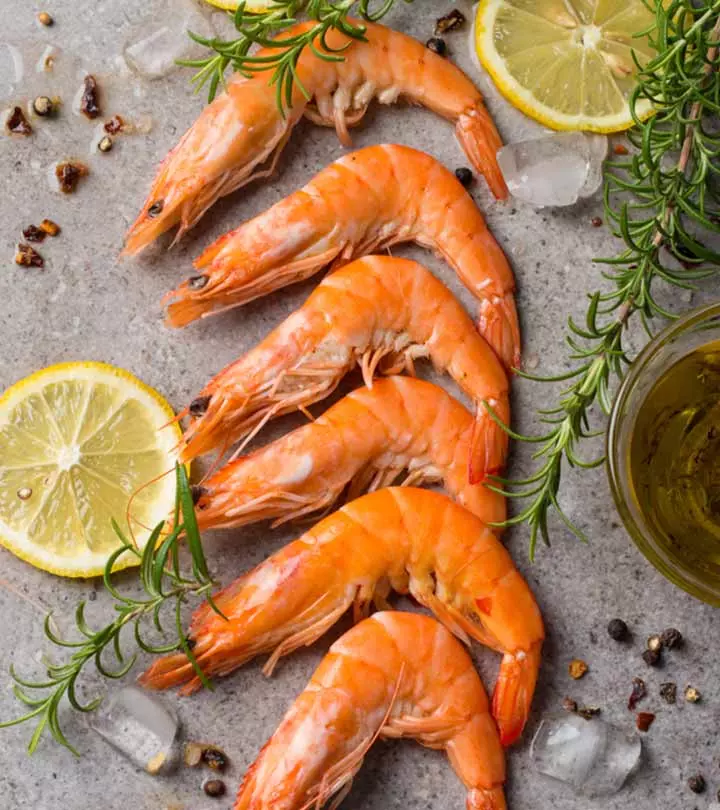
Image: Shutterstock
Shrimp is a type of seafood that is rich in nutrients and is a low calorie option. This low-carb food contains a wide variety of vitamins, minerals, proteins, and omega-3 fatty acids. The benefits of shrimp are numerous, and they range from aiding weight loss and reducing the risk of heart disease to slowing down premature aging. It is also high in iodine, which is a mineral that is hard to find in many other foods. Also, shrimp contains an antioxidant that can help reduce inflammation and plays a key role in reducing the risk of several chronic diseases.
This article explores shrimp nutrition value and facts, health benefits, and how to incorporate it in your diet. Keep reading.
 Know Your Ingredient: Shrimp
Know Your Ingredient: ShrimpWhat Is It?
A shellfish rich in fatty acids, commonly used in seafood, found in both fresh and saltwater.
What Are Its Benefits?
Promotes healthier skin, aids weight loss, and may improve heart health and brain functioning.
Who Can Use It?
Safe for consumption depending on individual allergies and harvesting processes.
How Often?
It is ideal to eat seafood in moderation.
Caution
May cause severe allergic reactions and be contaminated with high mercury levels due to environmental pollution. It may be high in toxins or harmful substances depending on its harvesting and preparation.
In This Article
What Are Shrimps?
Shrimps are decapod crustaceans (they have 10 legs) that have two big compound eyes that give them a panoramic view of the ocean. Astaxanthin, a carotenoidi A fat-soluble antioxidant in plants and animals that may help reduce the risk of certain diseases like cancer and cataract. with strong antioxidant properties, found in shrimp is responsible for their pink and red color appearance (1). Here are some common types of shrimp that can enhance your culinary experience:
- Wild-Caught Shrimp: Known for their robust flavor and firm texture.
- Farmed Shrimp: Typically more affordable and available year-round, they are farmed in controlled environments, giving them their superior edge over wild-caught shrimp.
- Tiger Shrimp: Have distinctive stripes and meaty texture. Tiger prawns can be processed into a variety of meals, including tempura, grilled shrimp, sautéed shrimp, and shrimp curry, because of their big size.
- White Shrimp: Known for their mild flavor and versatile culinary applications, white shrimp is one of the most popular types of shrimp. Due to their scarcity, some white shrimp can be quite expensive.
Contrary to popular belief, shrimps are different from prawns. They belong to different groups (2). They can be differentiated based on their:
- Size: Shrimps are smaller than prawns.
- Body: Shrimps have only one pair of legs, while prawns have three pairs.
- Mode Of Reproduction: Shrimps carry fertilized eggs in their body, while prawns release their eggs into the water.
- Habitat: Shrimps are mostly marine, while prawns live in freshwater.
 Fun Fact
Fun FactTheir nutritional compositions, however, are very similar. They are both high in protein, vitamins, and minerals. Hence, you can substitute one with the other in different recipes.
Shrimps are an integral part of any seafood diet. But what nutrients do they offer? Read on to know their nutritional profile and what 100 grams (about 3.5 ounces) of cooked shrimp contains (3):
Calories | 99 kcal |
Protein | 24 g |
Carbohydrates | 0.2 g |
Total lipids (Fat) | 0.28 g |
Potassium | 259 mg |
Phosphorus | 237 mg |
Magnesium | 39 mg |
Sodium | 2.12 mg |
Zinc | 1.64 mg |
Cholesterol | 189 mg |
Shrimps are also a good source of iodine, selenium, and vitamins A, D, E, B1, B2, and B3.
They also contain omega-3 fatty acids like eicosapentaenoic acid (EPA) and docosahexaenoic acid (DHA) (4).
Shrimps have high cholesterol levels, though they are lower than the total amount found in an egg. Conversely, consuming a regular diet containing 300 grams of shrimps was found to decrease triglyceride (fat) levels by 13%. The findings conclude that moderate shrimp intake does not adversely affect the overall fat profile of the body and the type of dietary fatty acid, not the levels of dietary cholesterol, is the potent regulator of serum cholesterol levels (4).
Shrimps are a highly favored seafood choice, known for offering numerous health benefits. According to the 2022 Food and Health Survey carried out by the International Food Information Council, 28% of the 1,005 surveyed Americans between the ages of 18 and 80 reported consuming shrimp to enhance digestive health. Additionally, 39% of respondents consumed shrimp with the aim of promoting cardiovascular health, 32% to boost immune health, and 44% for weight loss purposes.
Shrimps are highly beneficial due to the presence of astaxanthin antioxidant, healthy fats, and minerals. We discuss their benefits in the next section.
Key Takeaways
- Shrimps are a low-calorie seafood that is rich in protein, phosphorus, potassium, magnesium, zinc, and sodium.
- They have fight inflammation and the signs of aging, aid in weight loss, and may improve gastrointestinal and heart health.
- But, they may cause side effects such as an allergic reaction or heavy metal contamination.
Health Benefits Of Shrimps
1. Have Anti-Aging And Skin And Hair Protective Properties

Exposure to the sun’s UV rays produces free radicals that can accelerate skin aging. Studies demonstrate that astaxanthin (a strong antioxidant present in shrimp) suppresses cell damage caused by these free radicals. Furthermore, astaxanthin also stimulates the body’s antioxidant defense mechanism (5). Shrimps also contain trehalose, a type of sugar that protects the skin and hair from UV damage (6). Taurine, a protein present in shrimp, also has anti-aging properties (7).
2. May Help Fight Inflammation
Chronic inflammation by oxidative stress can increase the risk of neurodegeneration, cancer, and skin damage. Astaxanthin, as stated, reduces oxidative stress and may help treat inflammatory skin disorders like psoriasisi A non-contagious chronic skin disorder that causes cells to multiply rapidly, forming red patches with white scales on the body. and atopic dermatitisi A chronic form of hereditary eczema found in both adults and children, causing red blotches, itching, and flare-ups. (5). Glycosaminoglycan, a bioactive compound found in shrimp, has anti-inflammatory properties and helps significantly reduce the influx of inflammatory cells to the injury site (8). They also contain an anti-inflammatory peptide (a short chain of amino acids) called shrimp anti-lipopolysaccharide factor (SALF), which is used as a drug to potentially treat urethral, vaginal, cervical, and pelvic inflammatory diseases (9).
3. May Improve Gastrointestinal Health
The astaxanthin found in shrimp shows antimicrobial activity against H. pylori, a type of bacteria that causes stomach infections (10). The pathogen can damage the stomach and intestinal tissue. This was shown in rats, where oral administration of astaxanthin was found to protect against ethanol-induced gastric lesions (injuries) (11).
4. May Enhance Brain Function

Numerous blood vessels run through the brain and help transport and consume oxygen for the brain to work. However, the blood vessels of the brain contain relatively fewer antioxidants and are more prone to oxidative damage.
Evidence suggests that the astaxanthin found in shrimp enhances the stability of the cells and mitochondrial membranes, and can protect against oxidative stress-associated neurodegeneration, like Parkinson’s disease (12). Additionally, a study validated the use of astaxanthin as an adjuvant therapyi An additional treatment following primary cancer treatment that attacks any remaining cancer cells to reduce the risk of recurrence. against Alzheimer’s disease (13).
5. May Promote Heart Health
Astaxanthin, a carotenoid with antioxidant properties, may be useful in treating atherosclerotic cardiovascular disease (thickening of arteries). It inhibits the oxidation of low-density lipoprotein (LDL) and may help prevent plaque buildup in the arteries (14). Shrimps are rich in omega-3 fatty acids that can help lower heart disease risk significantly. Intake of EPA and DHA (omega-3 fatty acids) was associated with 15% and 18% lower CVD mortality in men and women, respectively (15).
6. May Promote Weight Loss
Shrimps are low in calories and have no carbs. Moreover, their zinc content may boost leptin levels in the body, which concurrently can help prevent overeating. Leptin is a hormone that regulates the storage and use of fat and energy throughout the body and improves the immune system (16). Shrimps are also rich in iodine, which can help regulate body weight through its interaction with the thyroid, a gland that plays an essential role in the body’s metabolism and regulating body weight (17).
7. May Protect Your Vision
AMD (age-related macular degeneration) is the leading cause of severe vision loss among those over 60 years. Shrimp heparinoid has anti-angiogenic (preventing the formation of new blood vessels), anti-inflammatory, and anticoagulant (blood thinner) properties. It may help treat neovascular AMD and other angioproliferative diseases, conditions involving rapid blood vessel growth (18).
You can add shrimp to your diet in many ways. We have rounded up a few delicious shrimp recipes for you to try at home. Take a look below!
How To Add Shrimps To Your Diet?
1. Shrimp Scampi
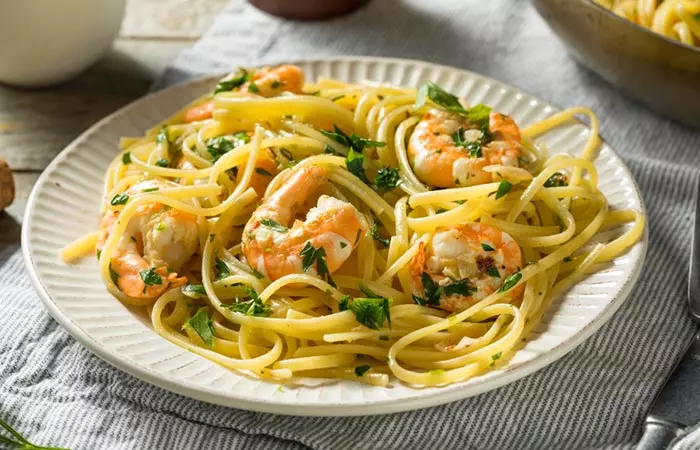
What You Need
- 500 g shrimp (peeled and deveined)
- 250 g angel hair pasta
- 4 cloves garlic (minced)
- 1 cup dry white wine
- 3/4 cup parmesan cheese (grated)
- 1/2 cup butter
- 1 tablespoon fresh parsley (chopped)
- 1/4 teaspoon black pepper (ground)
- 2 tablespoons salt
- Water, as needed
How To Prepare
- Boil salted water in a large pot. Add pasta and cook until al dente. Discard water.
- Melt butter in a pot over medium heat and add shrimp and garlic. Stir continuously for 3 to 5 minutes.
- Add wine and pepper. Let it boil for 30 seconds while constantly stirring.
- Mix shrimp and pasta in a bowl. Garnish with cheese and parsley.
2. Garlic Shrimp
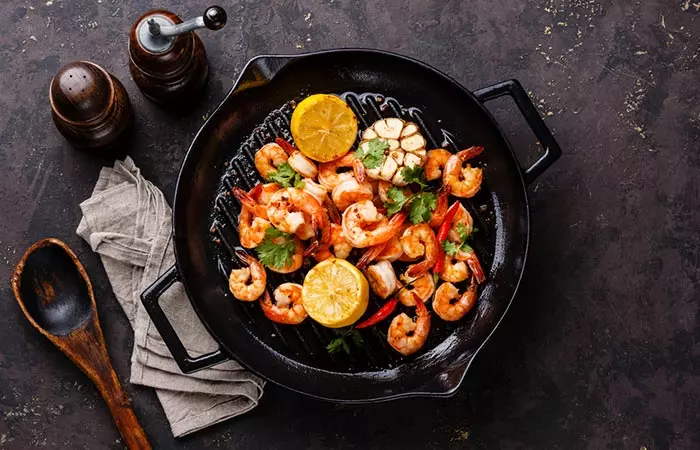
What You Need
- 500 g shrimp (peeled and deveined)
- 1½ tablespoons olive oil
- 6 cloves garlic (minced)
- 3 tablespoons lemon juice
- 1 tablespoon caper brine
- 1/3 cup fresh parsley (chopped)
- 1/4 teaspoon red pepper flakes
- Salt, as needed
- Water, as needed
How To Prepare
- Heat olive oil in a heavy skillet until it begins to smoke. Spread the shrimp evenly in a single layer and cook for a minute without stirring.
- Add salt. Simmer for a minute until the shrimp turns pink.
- Add garlic and red pepper flakes. Stir and cook for a minute.
- Add lemon juice, caper brine, butter, and half of the parsley.
- Cook for about a minute or until the butter is melted and the sauce is thick.
- Add one teaspoon of water if the butter sauce turns too thick. Transfer shrimp to a bowl and continue cooking the sauce for 2 minutes. Add salt to taste.
- Add the pan sauce to the shrimp and drizzle the remaining parsley over it. Serve!
3. Cajun Shrimp
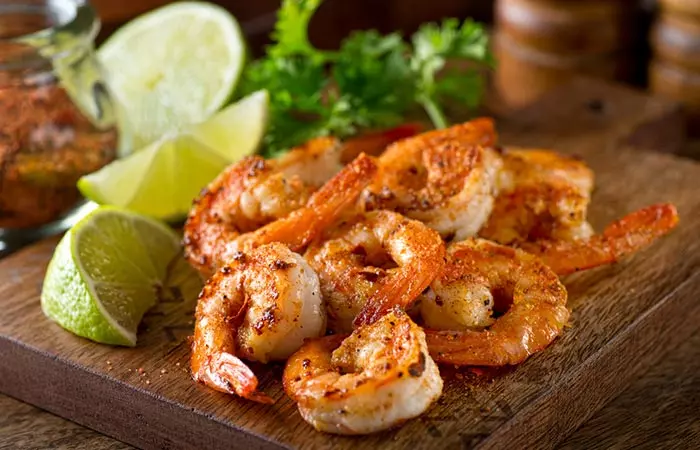
What You Need
- 500 g shrimp (peeled and deveined)
- 1 tablespoon olive oil
- 1/4 teaspoon garlic powder
- 1 teaspoon paprika
- 3/4 teaspoon dried thyme
- 3/4 teaspoon dried oregano
- 1/4 teaspoon salt
- 1/4 teaspoon black pepper, ground
- 1/4 teaspoon cayenne pepper
How To Prepare
- Mix the paprika, thyme, oregano, garlic powder, salt, pepper, and cayenne pepper in a sealable plastic bag.
- Toss shrimp in the bag and shake.
- Heat oil in a large non-stick skillet over medium-high flame
- Add in the mixture and gently stir shrimp for about 4 minutes until it is bright pink.
 Quick Tip
Quick Tip4. Coconut Shrimp
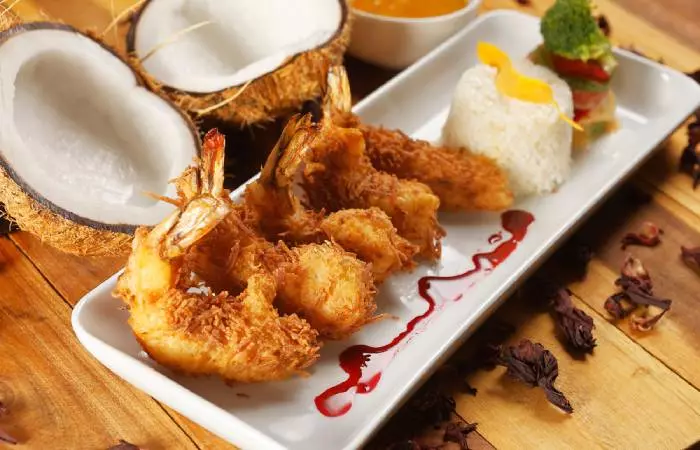
What You Need
- 10-12 large shrimps, peeled and deveined
- 1 large egg
- ½ cup shredded coconut
- ¼ cup all-purpose flour
- Cooking oil (enough to fill ½ inch of the cooking pan)
- Salt and pepper to taste
How To Prepare
- Heat oil in a pan over medium-high flame.
- Mix the all-purpose flour with salt and pepper in a shallow bowl.
- Beat the egg well in another bowl.
- Coat each shrimp piece evenly in the flour and then dip in the beaten egg.
- Roll the dripping shrimp in the shredded coconut, pressing the shreds onto it for a nice, thick layer.
- Fry the coated shrimps for 2-3 minutes in oil until golden brown on both sides.
- Place the fried coconut shrimp on a paper towel to drain excess oil.
- Serve with your preferred dipping sauces.
Let us now move on to some statistical representation of the global value of shrimp.
This graph shows the volume of worldwide exports of live, fresh, or chilled cold-water shrimp and prawns in 2021. Germany topped the chart with an export of approximately 3,855 tonnes of cold-water shrimp and prawns worldwide.

Global Leading Shrimp And Prawn Exporters
Source: StatistaUnfortunately, shrimp is not for everyone; it may cause adverse effects in some people after consumption.
Possible Side Effects
1. May Cause Allergic Reactions
Tropomyosin, the muscle protein of shrimp, is said to cause allergic reactions in many people. Itching in the mouth and throat and swelling of lips are the most common symptoms (19).
Shellfish allergy affects up to 10.3% of the general population. About 2 percent of the 14,949 Americans studied reported shellfish allergy. It was more common among adults (2.5%) than children (0.5%). Shellfish food allergies (0.9%) led the list of food allergies, followed by that of peanuts (0.5%), according to a research based on the electronic health records (EHR) in the US (19).
Marcus, a Youtuber, talks about how he once consumed shrimp and swelled up. He says, “I am driving and I look up in the rear view mirror, and I don’t know if you’ll have seen the movie Hitch where my man was all swollen up but that was your boy (i). ”
2. May Be Contaminated With Heavy Metals
Shrimps are bottom feeders and are susceptible to accumulating heavy metals if their surrounding environment is polluted. As a result, concerns have been raised about the levels of mercury and other heavy metals, like cadmium, in shrimp.
However, most shrimps we eat are raised on farms where their nutrition and habitats are constantly monitored. Hence, the chances of mercury contamination in shrimps are low. Nevertheless, balance your shrimp intake to stay on the safe side.
Infographic: 5 Reasons To Include Shrimps In Your Diet
Shrimps, like any other seafood, are an excellent source of omega-3 fats that primarily help maintain your heart health. They are also loaded with antioxidants and plenty of other nutrients that may help you lead a healthier life. The infographic below highlights the reasons that will get you super-excited about including them in your diet. Take a look.

Illustration: StyleCraze Design Team
Infographic: 5 Reasons To Include Shrimps In Your Diet
Shrimps, like any other seafood, are an excellent source of omega-3 fats that primarily help maintain your heart health. They are also loaded with antioxidants and plenty of other nutrients that may help you lead a healthier life. The infographic below highlights the reasons that will get you super-excited about including them in your diet. Take a look.

Illustration: StyleCraze Design Team
Shrimp is a popular seafood option due to its culinary versatility and delicious, chewy meat. It is a low-calorie food rich in omega-3 fatty acids, protein, vitamins, minerals, and bioactive compounds like astaxanthin. Shrimp benefits your health in many ways. It may help boost cognitive health, cardiovascular health, and gut health. In addition, shrimp may help fight harmful free radicals and reduce inflammation. It is also good for your skin and may delay early aging. However, excess consumption is not recommended. Seek medical advice if you experience any side effects.
Frequently Asked Questions
Is shrimp a superfood?
Yes. Shrimps are a good source of proteins, omega-3 fatty acids, and antioxidants like astaxanthin that make it a nutritionally dense superfood.
Is shrimp good for you?
Yes, shrimp benefits your overall health. It supports brain health and thyroid functioning. It is low in calories and rich in omega-3 fatty acids, nutrients, and antioxidants.
What does shrimp do to your hormones?
There is less information on the effects shrimp may have on your hormones.
Is shrimp good for your liver?
Yes. A research study showed that a shrimp-rich diet helps lower liver cholesterol levels and the excretion of steroids due to the presence of beneficial fats (20).
Which is healthier: shrimp or salmon?
Salmon. Salmon is richer in highly beneficial omega-3 fatty acids and has less cholesterol than shrimps (3), (21).
Is shrimp good for your digestive system?
There is no scientific evidence suggesting that consumption of shrimps may be good for your digestive system.
Is shrimp good for blood flow?
Possibly. Shrimp contains beneficial proteins and antioxidants that help protect the blood capillaries from damage. Shrimp may help reduce high blood pressure as well (22).
Are shrimps high in salt?
Yes. Shrimps are relatively high in sodium, as fresh shrimps contain about 111 mg of it for every 100 g serving. Canned shrimp may have a higher concentration of salt as it absorbs the salt from the brine (3).
Illustration: Amazing Benefits Of Shrimp Recipes And Side Effects
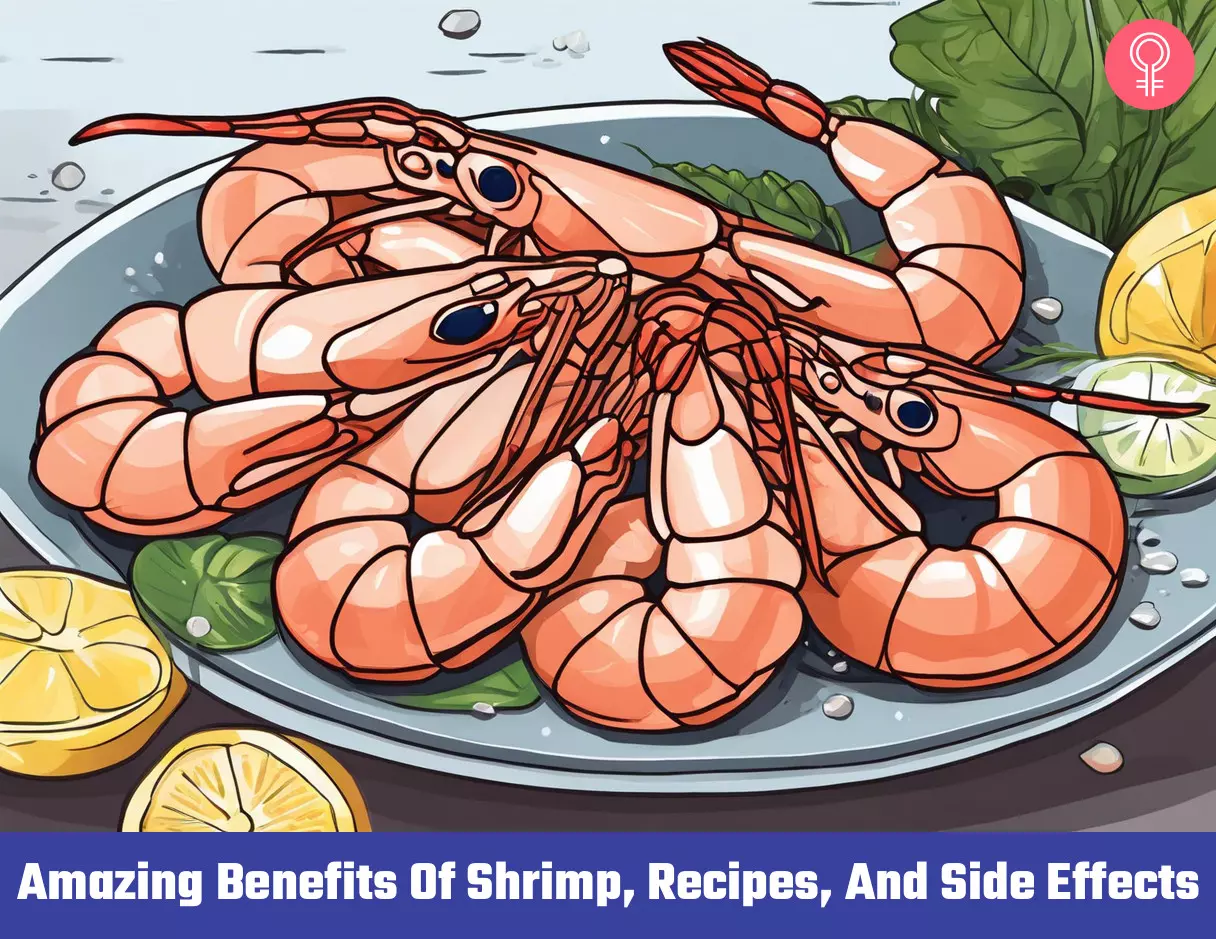
Image: Stable Diffusion/StyleCraze Design Team
Uncover the benefits of shrimp and understand their potential side effects in the informative video below. Check it out to make informed choices about including it in your diet.
Personal Experience: Source
StyleCraze's articles are interwoven with authentic personal narratives that provide depth and resonance to our content. Below are the sources of the personal accounts referenced in this article.
i. My Life-Threatening Shellfish Allergy Scare: How I Thought I Was Allergic to Shrimp
https://www.youtube.com/watch?v=YAo2xKiu-kA
References
Articles on StyleCraze are backed by verified information from peer-reviewed and academic research papers, reputed organizations, research institutions, and medical associations to ensure accuracy and relevance. Read our editorial policy to learn more.
- Astaxanthin for the Food Industry
https://pubmed.ncbi.nlm.nih.gov/34063189/ - A GUIDE TO THE NATANT DECAPOD CRUSTACEA (SHRIMPS AND PRAWNS) OF NEW ZEALAND
https://ndhadeliver.natlib.govt.nz/webarchive/20210104000423/http://nzetc.victoria.ac.nz/tm/scholarly/tei-Bio07Tuat01-t1-body-d5.html - Crustaceans shrimp cooked
https://fdc.nal.usda.gov/fdc-app.html#/food-details/175180/nutrients - Shrimp as health food – Advisory fact sheet
http://www.ciba.res.in/Books/ciba0595.pdf - Astaxanthin in Skin Health Repair and Disease: A Comprehensive Review
https://www.ncbi.nlm.nih.gov/labs/pmc/articles/PMC5946307/ - Trehalose against UVB-induced skin photoaging by suppressing MMP expression and enhancing procollagen I synthesis in HaCaT cells
https://www.sciencedirect.com/science/article/pii/S1756464620304229 - Potential Anti-aging Role of Taurine via Proper Protein Folding: A Study from Taurine Transporter Knockout Mouse
https://link.springer.com/chapter/10.1007/978-3-319-15126-7_38 - Anti-inflammatory properties of a heparin-like glycosaminoglycan with reduced anti-coagulant activity isolated from a marine shrimp
https://www.sciencedirect.com/science/article/abs/pii/S0968089608008572 - Shrimp anti-lipopolysaccharide factor (SALF) an antimicrobial peptide inhibits proinflammatory cytokine expressions through the MAPK and NF-κB pathways in LPS-induced HeLa cells
https://www.sciencedirect.com/science/article/abs/pii/S0196978112004615 - Treatment of H. pylori infected mice with antioxidant astaxanthin reduces gastric inflammation bacterial load and modulates cytokine release by splenocytes
https://www.sciencedirect.com/science/article/abs/pii/S0165247899001455 - Suppressive Effect of Astaxanthin Isolated from the Xanthophyllomycesdendrorhous Mutant on Ethanol-Induced Gastric Mucosal Injury in Rats
https://www.tandfonline.com/doi/abs/10.1271/bbb.69.1300 - The Neuroprotective Effects of Astaxanthin: Therapeutic Targets and Clinical Perspective
https://www.ncbi.nlm.nih.gov/labs/pmc/articles/PMC6680436/ - On the Neuroprotective Role of Astaxanthin: New Perspectives?
https://www.mdpi.com/1660-3397/16/8/247 - Astaxanthin: A Potential Therapeutic Agent in Cardiovascular Disease
https://www.mdpi.com/1660-3397/9/3/447 - In Reply–Impact of a High-Shrimp Diet on Cardiovascular Risk
https://www.mayoclinicproceedings.org/article/S0025-6196(20)31260-X/fulltext - Leptin and zinc relation: In regulation of food intake and immunity
https://www.ncbi.nlm.nih.gov/labs/pmc/articles/PMC3602991/ - Chapter 13 – Iodine and Adipocytokines: Cellular Aspects
https://www.sciencedirect.com/science/article/pii/B9780128021682000130 - A heparin mimetic isolated from a marine shrimp suppresses neovascularization
https://onlinelibrary.wiley.com/doi/10.1111/j.1538-7836.2010.03916.x - Overcoming Shellfish Allergy: How Far Have We Come?
https://www.ncbi.nlm.nih.gov/labs/pmc/articles/PMC7139905/ - Effects of dietary shrimp, squid and octopus on serum and liver lipid levels in mice
https://pubmed.ncbi.nlm.nih.gov/9720219/ - SALMON
https://fdc.nal.usda.gov/fdc-app.html#/food-details/1028841/nutrients - A Randomized, Double-Blind, Placebo-Controlled, Multicentre Trial of the Effects of a Shrimp Protein Hydrolysate on Blood Pressure
https://www.ncbi.nlm.nih.gov/pmc/articles/PMC6699271/
Read full bio of Janelle Bigelman
Read full bio of Payal Karnik
Read full bio of Ravi Teja Tadimalla
Read full bio of Sindhu Koganti






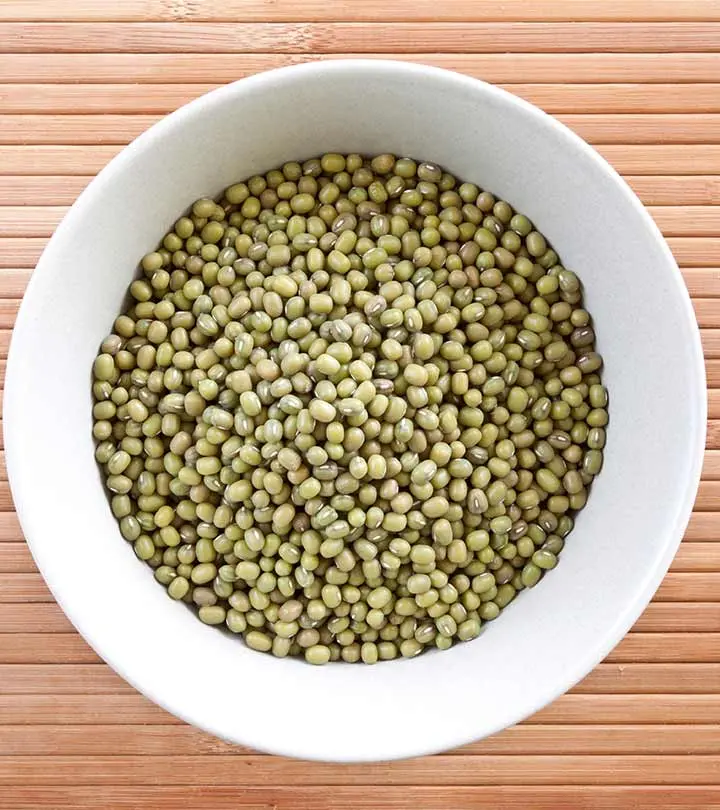
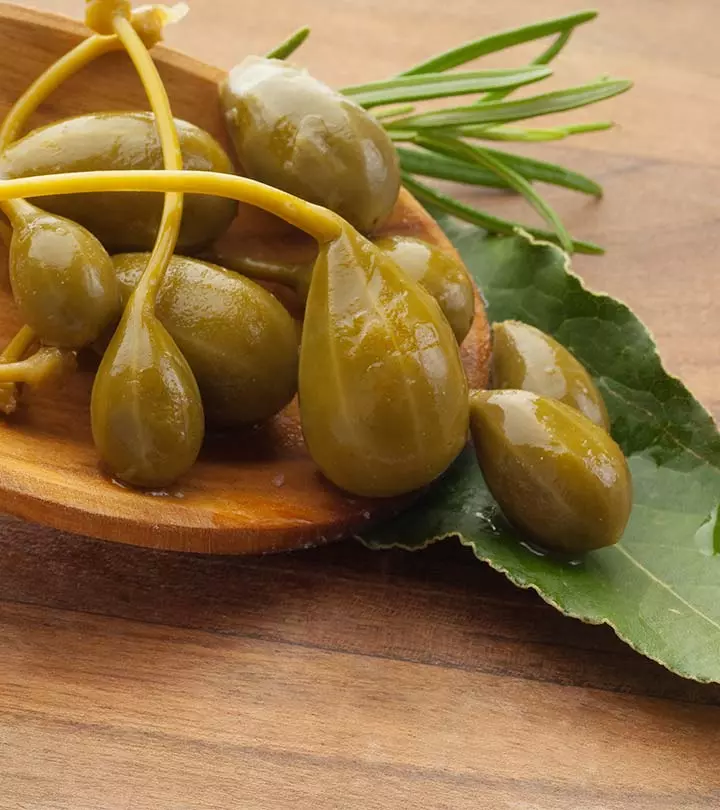

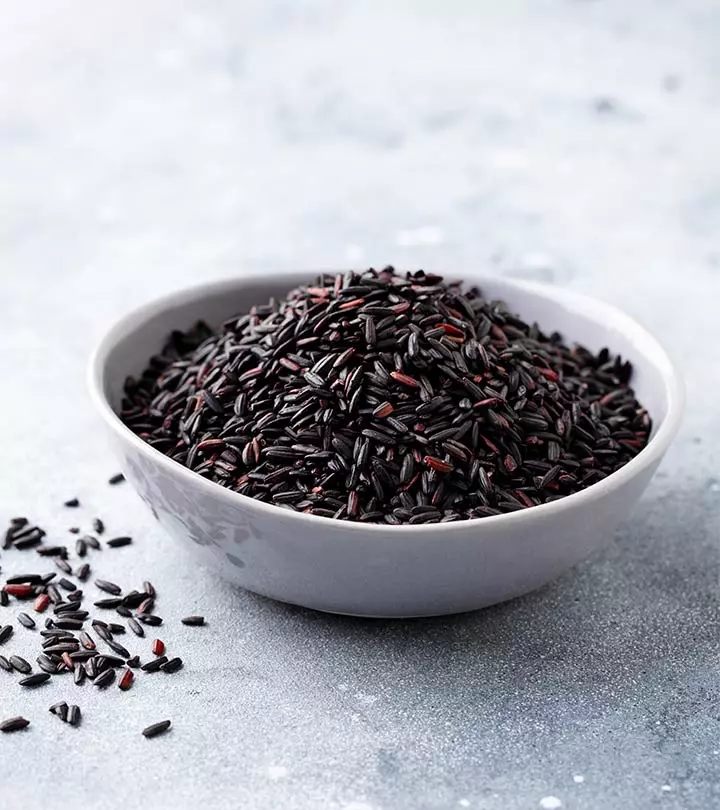
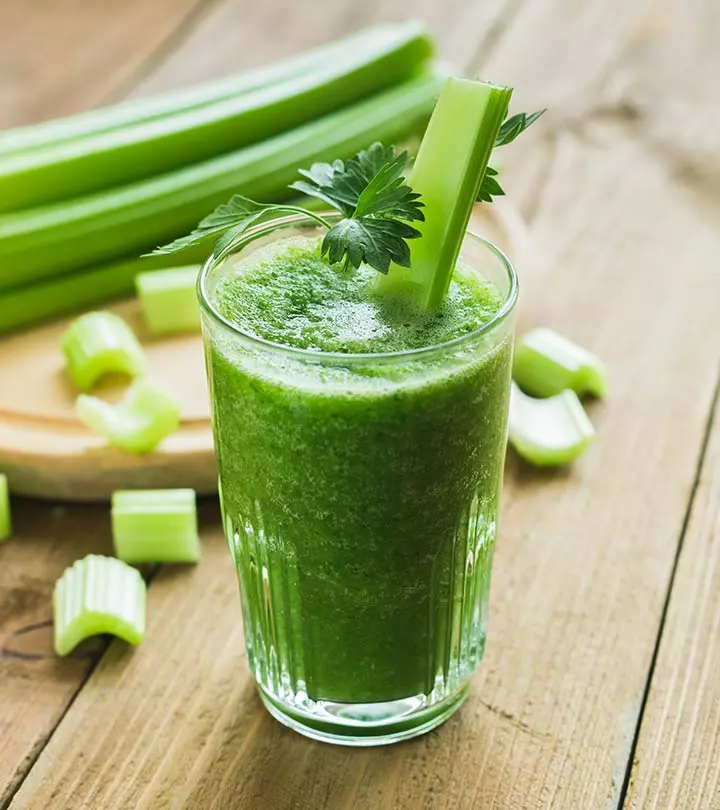

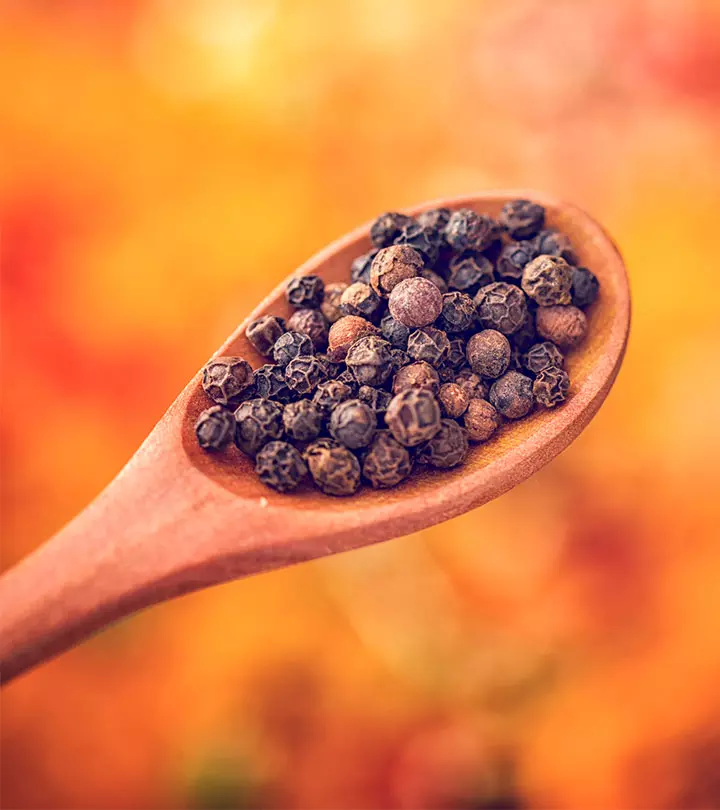



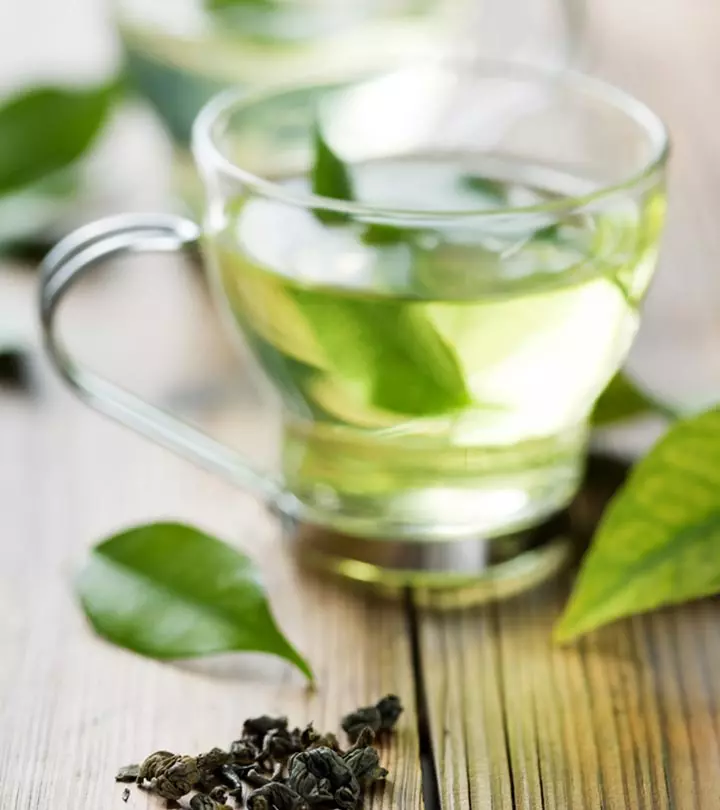
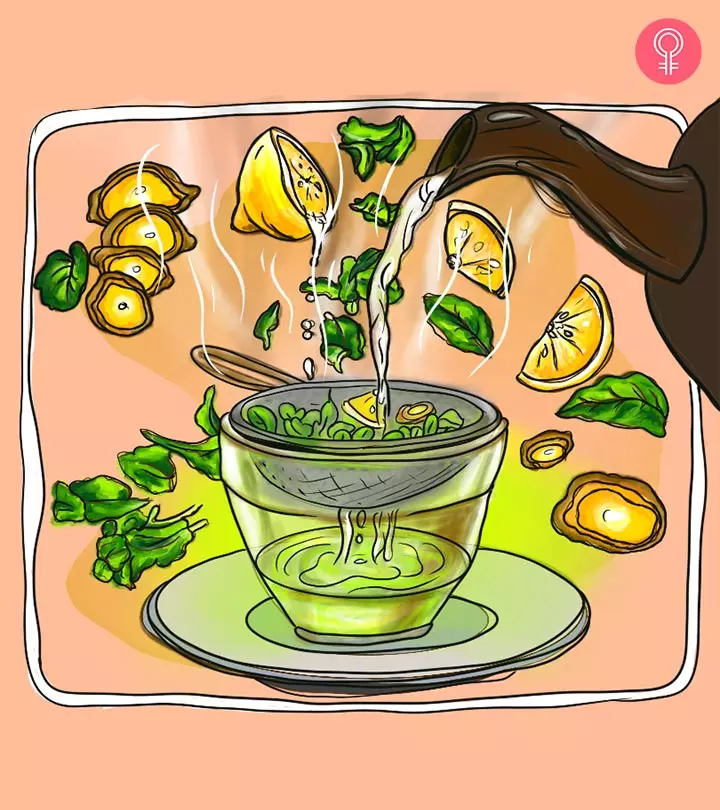
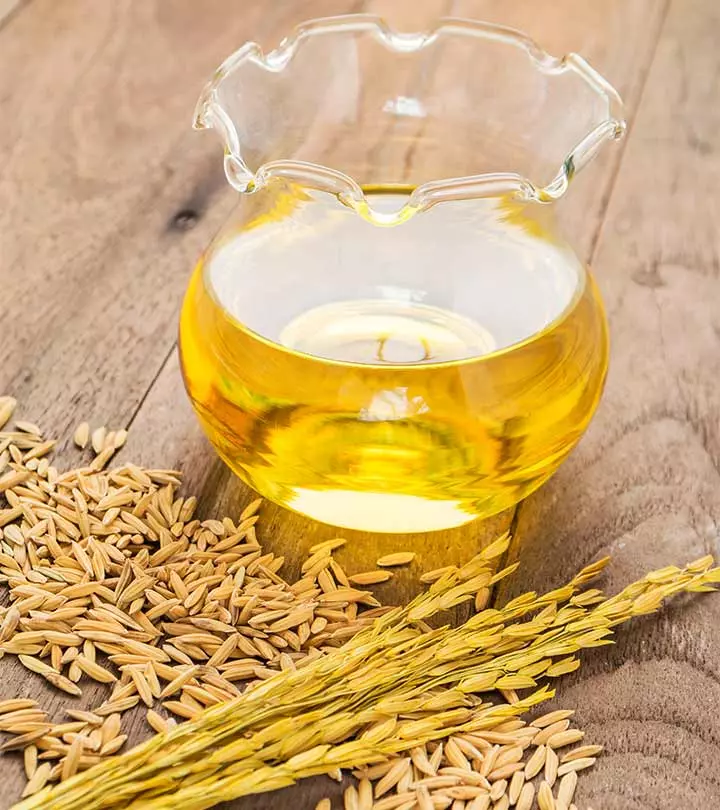
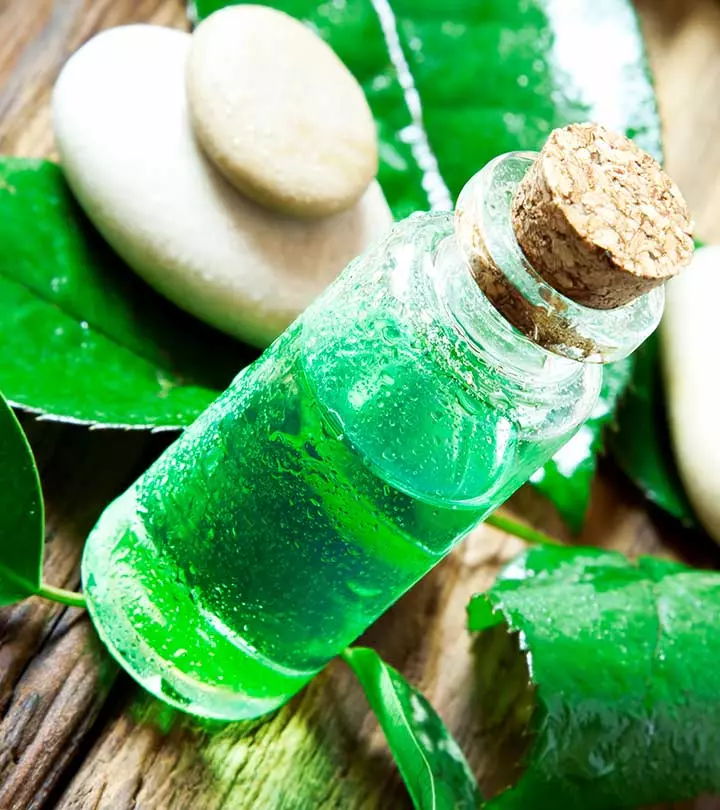
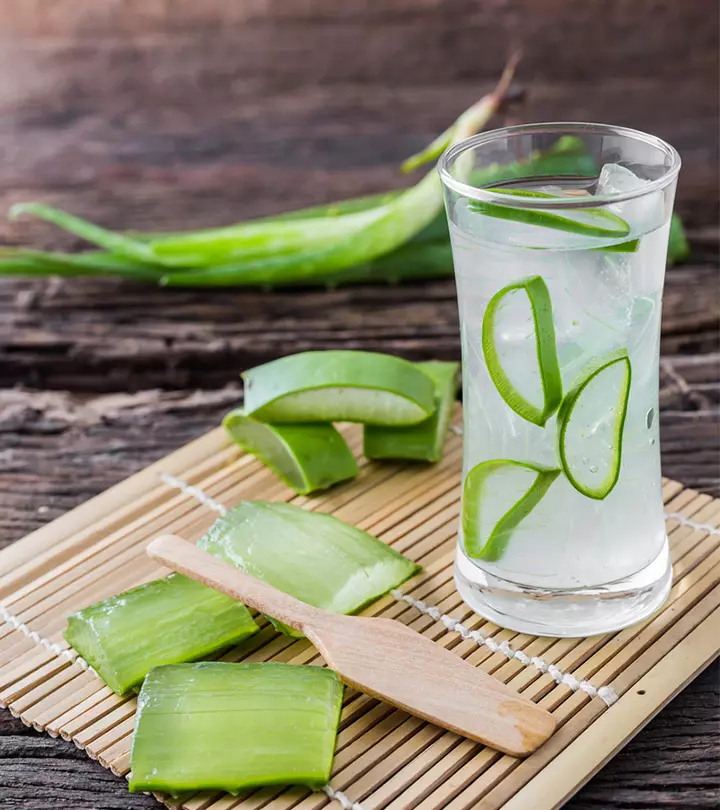



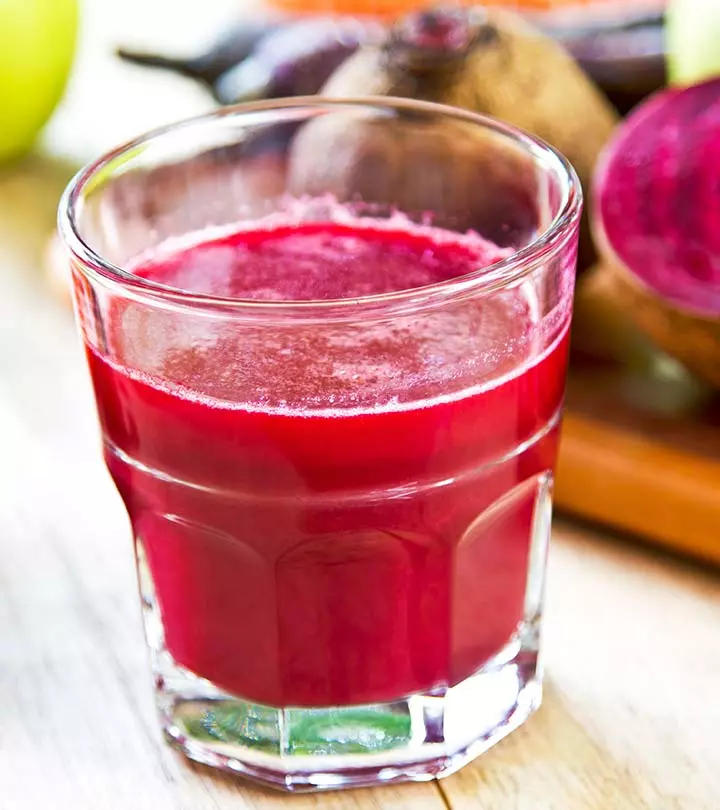
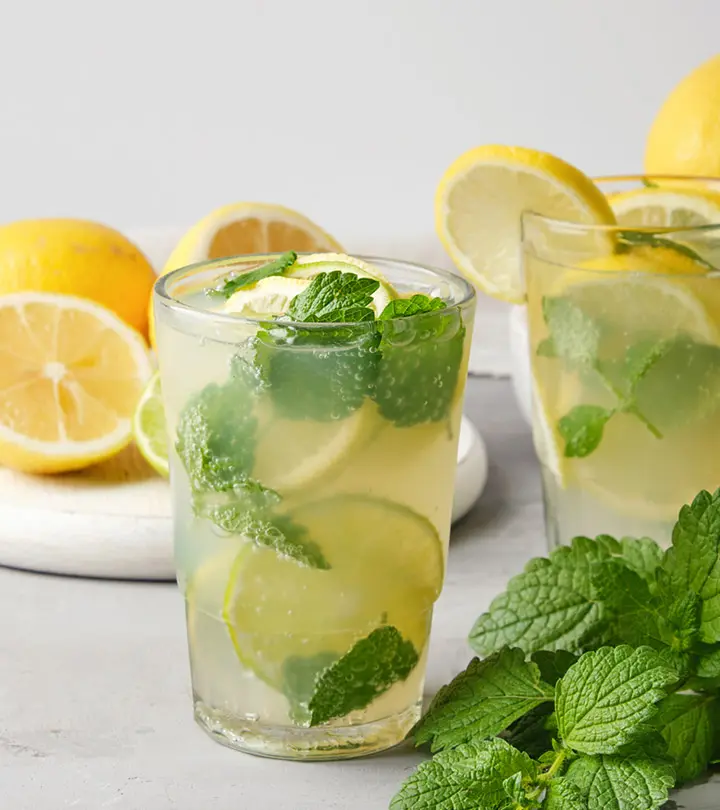

Community Experiences
Join the conversation and become a part of our empowering community! Share your stories, experiences, and insights to connect with other beauty, lifestyle, and health enthusiasts.